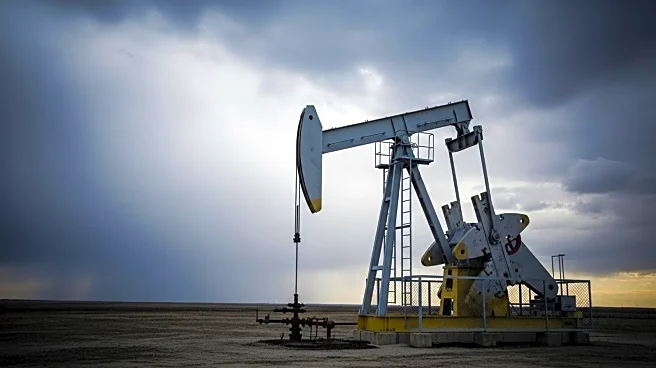What is the story about?
What's Happening?
ConocoPhillips is set to lay off between 20-25% of its workforce, affecting up to 3,250 employees globally. This decision comes as part of a restructuring effort in response to ongoing challenges in the oil and gas industry. The company is facing increased production costs and a sustained period of low oil prices, which have remained largely under $70 per barrel. These economic pressures are compounded by tariffs on steel and aluminum, further increasing drilling costs. ConocoPhillips CEO Ryan Lance has stated that the company needs to streamline operations and reduce roles to adapt to the current market environment.
Why It's Important?
The layoffs at ConocoPhillips highlight significant challenges within the oil and gas sector, particularly in the U.S. The industry is grappling with low oil prices and increased production costs, which are affecting profitability and leading to workforce reductions. This trend is not isolated to ConocoPhillips; other major companies like Chevron and Shell have also announced similar layoffs. The broader impact includes potential economic repercussions in regions heavily reliant on oil and gas employment, as well as shifts in industry dynamics due to mergers and acquisitions aimed at increasing efficiency.
What's Next?
As the oil and gas industry continues to face economic pressures, further consolidation through mergers and acquisitions is expected. Companies may continue to streamline operations and reduce staffing redundancies to maintain competitiveness. Additionally, with OPEC+ increasing oil production, global supply is likely to remain high, potentially keeping oil prices low. This environment may lead to a plateau in U.S. oil production growth, with companies focusing on efficiency and cost management.
Beyond the Headlines
The restructuring efforts and layoffs in the oil and gas industry raise questions about the long-term sustainability of U.S. oil production. As companies seek to adapt to a challenging price environment, there may be broader implications for energy policy and the transition to alternative energy sources. The industry's sensitivity to tariffs also underscores the interconnectedness of global trade policies and domestic economic conditions.


















